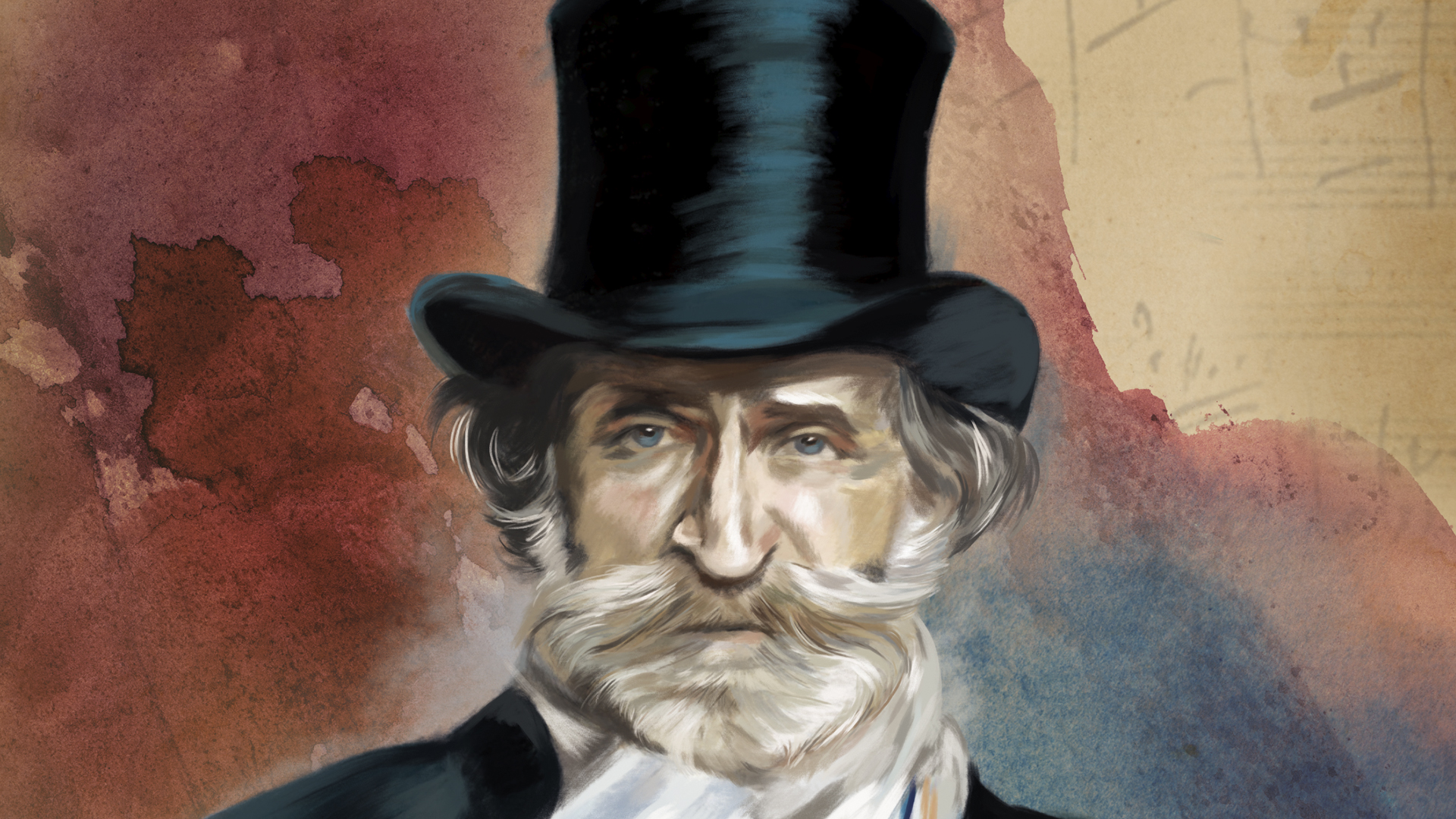Libiamo, libiamo ne’lieti calici che la belleza infiora
E la fuggevol ora s’inebrii a voluttà
Libiamo ne’dolci fremiti
Che suscita l’amore
Poiché quell’ochio al core
Omnipotente va
Libiamo, amore fra I calici
Più caldi baci avrà
Libiamo, amore fra I calici
Più caldi baci avrà
Tra voi, tra voi saprò dividere il tempo mio giocondo
Tutto è follia nel mondo ciò
Che non è piacer
Godiam, fugace e rápido
E’il gaudio dell’amore
E’un fior che nasce e muore
Ne più si può goder
Godiam, c’invita un fervido accento lusighier
Godiamo, la tazza e il cantico la notte abbella e il riso
In questo paradiso ne sopra nuccia Focile
La vita è nel tripudio
Quando non s’ami ancora
Nol dite a chi l’ignora
E’ il mio destin così
Godiamo, la tazza e il cantico la notte abbella e il riso
In questo paradiso ne sopra il nuovo dì
Biography
Giuseppe Fortunino Francesco Verdi was an Italian composer in the Romantic period.
He was born in 1813 in Le Roncole, in the Duchy of Parma, and at the age of 18 went to Milan to study composition. It was there that he became acquainted with opera. In 1839, he successfully premiered his first work, Oberto, at the Teatro Alla Scala in Milan, where he got his first big commissions, as well as the opera Nabucco (1842), which opened the doors to glory.
With his most famous compositions, Rigoletto (1851), Il Trovatore (1853), La Traviata (1853), La Forza del Destino (1862), Don Carlo (1867), Aida (1871), Otello (1887), and Falstaff (1893), Verdi reached dramatic maturity.
He enriched the music by exploring new theatrical territories, where tragedy and comedy, as well as individual and collective drama, intersect and enlighten each other. His always remarkably communicative style reveals a deep understanding of the human condition.
He dominated Italian operatic production in the second half of the 19th century, writing a total of 28 operas, as well as many choral works.
Today, he is remembered as one of the greatest composers of all time.
Verdi died in 1901 in Milan’s Grand Hotel, the victim of a heart attack. At his funeral, the famous conductor Arturo Toscanini conducted a choir of over 800 singers and several orchestras, in what was the largest funeral tribute in Italian history to date.
